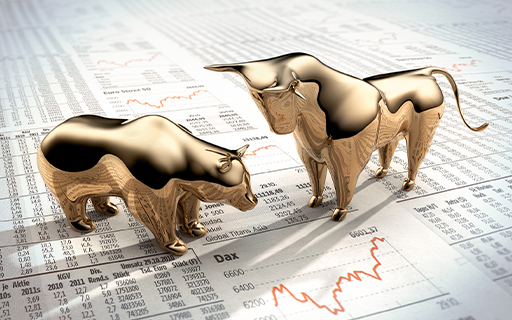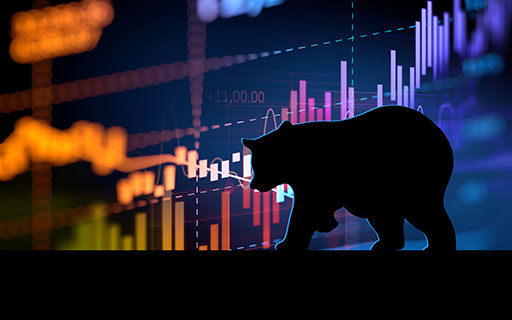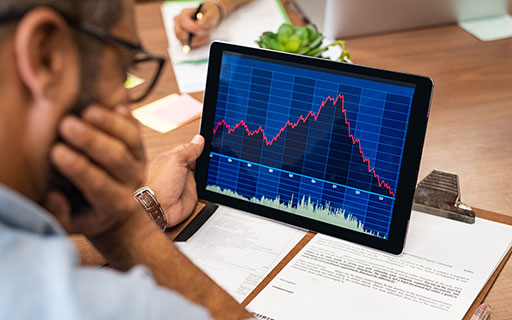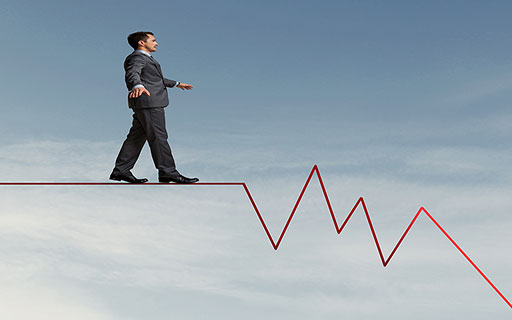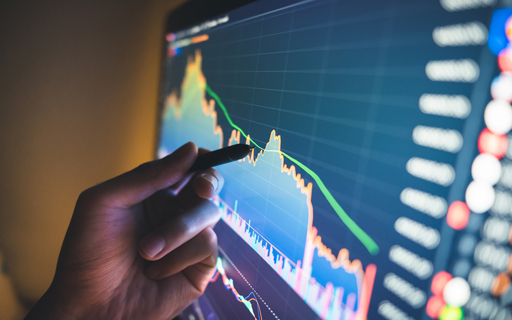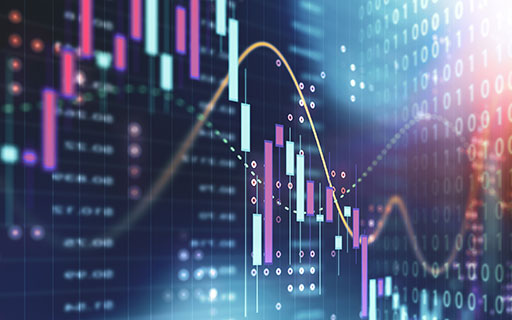- Home
- Outlook Arena
- Recession
Recession
A recession is a period when the economy of a nation contracts. In other words, business activity shrinks instead of expanding.
In economics, a recession is generally a period of at least two consecutive quarters of negative GDP growth. They are usually preceded by a period of strong economic growth, over investment, and over consumption.
During a recession, the GDP of an economy falls, income levels of people go down, there is an increase in unemployment, along with a decrease in industrial production and consumption.
It's a financially difficult time for a most of the population.
Economic indicators that could point to a recession are closely watched by governments and economists. Yet it's not easy to predict a recession in advance.
This is due to the fact that large economies are also very complex. It's not always possible, even for economists, to identify the factors that will trigger a recession.
However, once a recession hits, it's obvious to everyone.
Recessions can be short (less than a year) or long (a few years). They can also be deep (huge declines in GDP) or shallow (small declines in GDP). Long recessions can even have periods in between with short-lived positive GDP growth.
It's important to understand that recessions are a normal part of economic activity. Every boom phase in an economy is followed by a bust.
Recessions cause inefficient businesses to shut down. Banks reduce their lending and tighten their credit policies. Companies reduce their fixed costs and become more efficient.
The pain caused by recessions is temporary as the economy bounces back. Businesses emerge stronger with low debt, strong balance sheets, and good cash flows.
However governments don't like recessions. This is due to the high unemployment that it causes. They tend to intervene with policies to stimulate the economy. These include low interest rates and higher spending on infrastructure and social projects.
In recent times governments and central banks have directly infused money into economies by sending cash to people's back accounts and buying corporate bonds.
![]() Why Gold Price is Rising
Why Gold Price is Rising
Mar 6, 2024
The price of gold is on the rise. Find out why...
![]() Can the Stock Market Crash in 2024?
Can the Stock Market Crash in 2024?
Nov 24, 2023
How should you think about a potential market crash in 2024? Read on...
![]() Why the Indian Stock Market is Falling
Why the Indian Stock Market is Falling
Oct 26, 2023
These are the reasons why the stock market is declining.
![]() Should Long Term Investors Worry About Recession and Inflation?
Should Long Term Investors Worry About Recession and Inflation?
Jun 23, 2023
How events like recession and inflation impacts the portfolios of long term investors.
![]() US Debt Ceiling Saga at the Final Stretch. What Happens Next?
US Debt Ceiling Saga at the Final Stretch. What Happens Next?
May 31, 2023
The US government has finally reached its debt ceiling. How will the markets react next?
![]() How the US Debt Ceiling Will Impact the Stock Market
How the US Debt Ceiling Will Impact the Stock Market
May 25, 2023
Will the US debt ceiling cause a crash in the Indian stock market? Find out...
![]() Wipro Share Buyback: To Participate or Not?
Wipro Share Buyback: To Participate or Not?
Apr 28, 2023
The IT major has announced a big share buyback worth Rs 120 billion. Here's all you need to know about it...
![]() Why Infosys, TCS, HCL Tech and Other IT Stocks are Falling
Why Infosys, TCS, HCL Tech and Other IT Stocks are Falling
Apr 12, 2023
Before Indian IT stocks declare their Q4 earnings, take a look at the probable reasons why they're under pressure and what lies ahead...
![]() Will the US Banking Crisis Cause a Bull Market or Bear Market in India?
Will the US Banking Crisis Cause a Bull Market or Bear Market in India?
Mar 15, 2023
What kind of impact will the current US banking crisis have on the Indian stock market?
![]() What You Can Learn from the Great Crash in Tech Stocks
What You Can Learn from the Great Crash in Tech Stocks
Nov 24, 2022
Tech stocks crashed. What lesson is the market teaching us?
![]() Indian Share Markets Could Face These 3 Big Risks in 2024
Indian Share Markets Could Face These 3 Big Risks in 2024
Jan 21, 2024
What can cause the stock market to crash in 2024? Find out...
![]() Why Crude Oil Prices are Falling
Why Crude Oil Prices are Falling
Nov 20, 2023
Two reasons for the dip in oil prices and its outlook.
![]() Nifty 20,000: What Happens Next?
Nifty 20,000: What Happens Next?
Sep 13, 2023
How to trade and invest after Nifty 20,000.
![]() Why Mphasis Share Price is Falling
Why Mphasis Share Price is Falling
Jun 7, 2023
Midsized IT firms are facing strong headwinds and Mphasis is no exception. How long before the stock recovers?
![]() World's Fourth Largest Economy Enters Recession. Is a Crash Coming Soon?
World's Fourth Largest Economy Enters Recession. Is a Crash Coming Soon?
May 29, 2023
Is the stock market in danger of crashing after Germany's announcement of recession.
![]() This Fund Manager Generated 30%+ returns for Over 30 Years. Here are His Top Picks and Avoids in the Current Market...
This Fund Manager Generated 30%+ returns for Over 30 Years. Here are His Top Picks and Avoids in the Current Market...
May 11, 2023
This billionaire investor recently shared his views on the current economic situation, US dollar, gold, China, and more.
![]() Which Stock Looks Better on the Chart? Infosys or TCS
Which Stock Looks Better on the Chart? Infosys or TCS
Apr 19, 2023
Infosys posts biggest fall since Covid. How long before the fallen angel finds its mojo back?
![]() 3 Reasons Why Gold Price is Rising
3 Reasons Why Gold Price is Rising
Apr 5, 2023
These reasons explain why the gold price is at an all-time high.
![]() 4 Reasons Why FIIs Are Selling Indian Stocks
4 Reasons Why FIIs Are Selling Indian Stocks
Feb 10, 2023
This is why foreign investors are dumping their Indian shareholdings.
![]() Nifty 20,000: A Cheat Sheet
Nifty 20,000: A Cheat Sheet
Nov 17, 2022
What should you do as an investor when the Nifty reaches 20,000?


